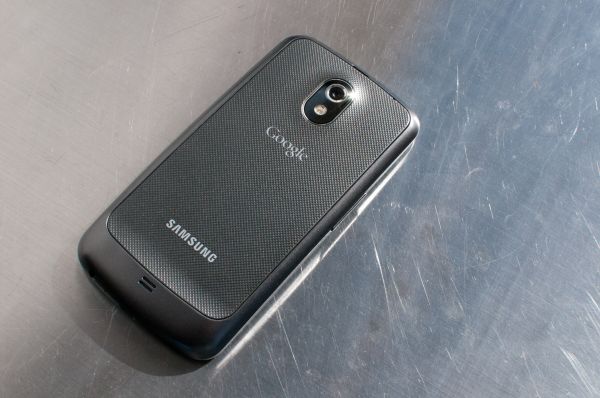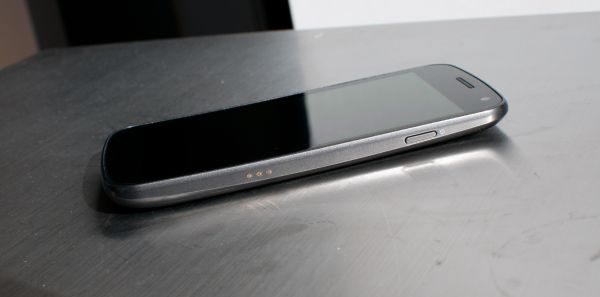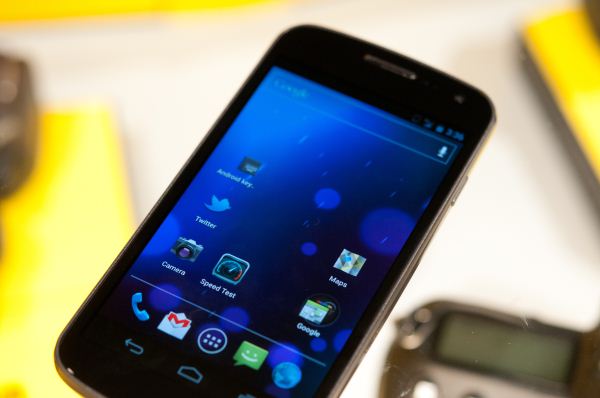Samsung Galaxy Nexus & Ice Cream Sandwich Review
by Brian Klug & Anand Lal Shimpi on January 18, 2012 1:34 PM ESTFor Google, one of the major points of Nexus has always been to provide a stable piece of reference hardware for it to cater a major OS release to. Each device has married a major revision of the Android platform to the latest stable hardware. That isn't to say that the hardware choices are always bleeding edge, but rather modern and logical next steps for the platform. I often read that Android as a platform is plagued by rapid hardware releases and product cycles that leave endless variants of the same hardware for each carrier, and that preloads and skins fragment the experience. While there's some truth to this, it isn't necessarily Google's fault - the software is open source after all. In the case of Android 4.0, this release is about consolidating the tablet and smartphone form factors under one version of Android and negating some talk of the platform's fragmentation.
For Google, each Nexus launch is analogous to Apple's iPhone launch - it's the one time that Google gets to dictate exactly what hardware is coming out, and exactly what software makes it onto that hardware. It is no less significant for Google's platform, either. Thus far there's been one Nexus device released per year, and that hardware gets updates from Google directly - at least until the hardware precludes support.
While the Verizon CDMA/LTE Galaxy Nexus is a bit unique, there's no indication thus far about how long carrier approval will take. The Galaxy Nexus line itself is very interesting - on one side, we have the GSM/UMTS device with pentaband WCDMA support that finally fully detaches the hardware from needing carrier specific versions for each region or carrier on GSM/UMTS networks. This is a dramatic step toward reducing carrier power, turning the networks into dumb pipes, and changing the way US customers shop for devices - exactly what the point was when Google launched the Nexus One. On the other, we have the Verizon CDMA/LTE version which thus far marks the furthest carrier incursion into otherwise untouched Nexus-land.
At this point, the Galaxy Nexus is awesome because of its marriage of Android 4.0 and a number of unique hardware features. I'd go so far to say that the Galaxy Nexus is without question the current best Android device, and with the improvements made in Android 4.0, first party applications and browser are now nearly as smooth as their counterparts in iOS. If OS smoothness was the thing holding you back from Android, 4.0 does a lot to change that. The Galaxy Nexus display is excellent, pentaband WCDMA on the GSM/UMTS model is exclusive only to that device, battery life isn't half bad, instant capture works well, and it has Samsung's newest LTE modem. The downsides are pretty much obvious - the camera is far from awesome, the GSM/UMTS variant has a quiet speakerphone, Samsung is using OMAP4460 at 80% of its maximum clocks, and some Galaxy Nexus displays have more more inhomogeneities than others. There's also the matter of newer 32 and 28nm SoCs that are just over the horizon.
The Galaxy Nexus is so important again because it's the only time Google gets to dictate everything - the hardware, the software, and update timing. There's also the element of freedom, with unlockable hardware out of the box. I find myself wishing that Google had begun its adventure sticking it to the carriers with pentaband WCDMA support like this phone finally has, as that would've been much more successful than the practice of releasing a few different Nexus variants with different bands.
As far as Ice Cream Sandwich is concerned, it really is Android perfected. Everything is smoother, faster and nearly all of our issues with the OS have been addressed. ICS brings Android into 2012 and gives Google a great platform to begin to introduce new features going forward. Android is now very close to UI performance parity with iOS, which eliminates a major tradeoff you had to make in the past. If you were hoping for ICS to be iOS with a Google logo on it, you'll be sorely disappointed. However if you're a fan of Android and just wished it were smoother and more polished, Ice Cream Sandwich is what you've been waiting for.













185 Comments
View All Comments
TedG - Wednesday, January 18, 2012 - link
I am looking forward to ICS on my RAZR. It seems similar in power and size to the Nexus.Jonathan Dum - Wednesday, January 18, 2012 - link
Any comments on the quality of the touch sensors? My biggest gripe with my Nexus One is the absolutely inane touch accuracy in comparison to an iPhone. If these new ICS phones have significantly improved touch sensors, I may be coaxed into sticking with Android.jalexoid - Wednesday, January 18, 2012 - link
Synaptics touchscreen controller on N1 was to blame. Even the HTC's "copy" Desire had a much better touchscreen experience due to a better touchscreen controller.All devices after that should have a really good controller.
tipoo - Thursday, January 19, 2012 - link
Same with my Nexus S. The locational accuracy is good, but it actually senses a tap with my finger a few millimeters above the screen, which can cause problems with the keyboard and other precise apps.Brian Klug - Thursday, January 19, 2012 - link
That was always my bug with the Nexus One as well, and it remains an unsolved problem to this day on that phone.I've seen no touch recognitions at all on the Galaxy Nexus. For the most part honestly these issues have gone away as the OEMs stopped being cheap with their capacitive layers and controllers. The Nexus One was especially bad.
I've seen some people complaining about issues with recognition in the bottom right corner - hardware swaps fix those problems.
-Brian
Skiddywinks - Wednesday, January 18, 2012 - link
... is the GN still going to be the best Android on the market? I upgrade in March, and it basically comes down to the S2 or the GN. Each has their advantages, but personally it largely comes down to the display and the GPU.I like to play emulated games on my phone, but I don't know how they work in terms of whether they are software only, or can GPU accelerate. The better GPU in the S2 doesn't really do much if the GN can play everything else on the market at no apparent deficit. Better display all the way in that case. GN wins.
I'm not liking the lack of mSD in the GN either, though.
BAH. Decisions, decisions.
tipoo - Thursday, January 19, 2012 - link
Yeah, the Mali 400 in the GS2 might benchmark way higher than the Galaxy Nexus, but there are no games that exclusively run on it, or even that have more features on it like Tegra phones. I'd guess that even with its relatively weak GPU the Galaxy Nexus will never leave you wanting in games for the next year or two, and its screen is better. My Nexus S can still play top end games like Shadowgun, and that was built for more powerful tablets. With Android developers aim for middling hardware.medi01 - Wednesday, January 18, 2012 - link
@Android is an OS that, although more closed than many would like, still allows more flexibility than iOS@And that comparing Open Source OS to something as closed as it gets. It is merely "still allows more than iOS", hilarious.
doobydoo - Thursday, January 19, 2012 - link
The openness of Android wasn't being compared to iOS, the flexibility was.Two separate points.
Gwynbleidd - Wednesday, January 18, 2012 - link
Two things, though:1. You wrote "Business is as usual for Windows users as ICS based devices just appear as a drive letter thanks to native MTP support." - that's not true, because of MTP Nexus appears in My Computer in Windows as a multimedia device and does not have a letter assigned, so sadly it's not possible to use traditional file managers like Total Commander to deal with files on it without additional plugins.
2. Did you notice any screen quality issues in your devices? Mine shows ugly pinkish smudges visibly especially on gray backgrounds, here's photo (it's out of focus on purpose, otherwise there would be a rainbow goo on screen):
http://img812.imageshack.us/img812/7794/nexussmudg...
So when scrolling webpages you can see that text is pinkish at the top, then white stripe, then pinkish again... Apparently I'm not the only one having this issue with Nexus, and there is a long thread on xda forum about the same problem with Galaxy Note Screens
http://forum.xda-developers.com/showthread.php?t=1...
A little investigation, maybe? ;)